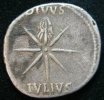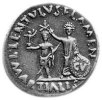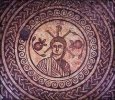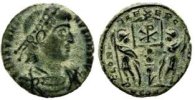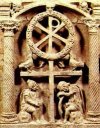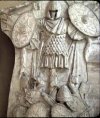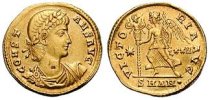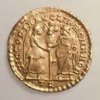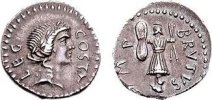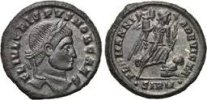You are using an out of date browser. It may not display this or other websites correctly.
You should upgrade or use an alternative browser.
You should upgrade or use an alternative browser.
Was Julius Caesar the real Jesus Christ?
- Thread starter Laura
- Start date
I too ordered Carotta's book on 30th July and got this reply just a couple of days ago:
We're awaiting a revised estimate from our supplier, and will email you as soon as we receive this information.
domi said:I'll contact the publisher to get an idea of stock levels and report back.
The publisher (Uitgeverij Aspekt; _http://www.uitgeverijaspekt.nl/) has plenty of stock of the English version of Carotta's book (and so does Centraal Boekhuis)
As far as online purchases I was pointed to two Dutch online stores that should have ample stock:
_http://www.bol.com/nl/p/jesus-was-ceasar/1001004001847813/
_http://www.bruna.nl/engelstalige-boeken/jesus-was-ceasar-9789059113961
Let me get back in touch with them to determine if shipping cost is reduced if I order several copies.
domi said:As far as online purchases I was pointed to two Dutch online stores that should have ample stock:
_http://www.bol.com/nl/p/jesus-was-ceasar/1001004001847813/
_http://www.bruna.nl/engelstalige-boeken/jesus-was-ceasar-9789059113961
Let me get back in touch with them to determine if shipping cost is reduced if I order several copies.
I tried to order from both online. The first one looks like it only ships in country from what I could tell from using online translating. The second one I went through translating each word and just couldn't get my address to come out right before trying to enter my credit card information. If you have luck with sorting out ordering from any of these places, would be willing to add a another copy and work out details of shipping and payment, I'd certainly like one.
davros of skaro
The Force is Strong With This One
Thank you Laura.
Yes Golgotha,and Rostra as the place of the skull is my own connection not Carotta's (PBUH).
It makes more sense to me that the very place of Caesar's body,and his wax imago was displayed is where
heads were displayed of defeated political enemies.Jesus had two thieves crucified with him in the NT,and
Cicero's head (who spoke slander) was displayed with his hands (that wrote slander) on the Rostra by Mark Antony (Caesar's priest).
(Wiki base reference only)
https://en.wikipedia.org/wiki/Rostra
There have been many books that have been burned to hide the past,and we must make these connections with great thanks to Carotta (PBUH) for his connections.
The Comet of 44 BCE that deified Caesar is no doubt the first Christogram the Chi Rho of Constantine.
(PBUH=Peace be unto him is a Muslim thing that I am being silly with )
)
Yes Golgotha,and Rostra as the place of the skull is my own connection not Carotta's (PBUH).
It makes more sense to me that the very place of Caesar's body,and his wax imago was displayed is where
heads were displayed of defeated political enemies.Jesus had two thieves crucified with him in the NT,and
Cicero's head (who spoke slander) was displayed with his hands (that wrote slander) on the Rostra by Mark Antony (Caesar's priest).
(Wiki base reference only)
https://en.wikipedia.org/wiki/Rostra
There have been many books that have been burned to hide the past,and we must make these connections with great thanks to Carotta (PBUH) for his connections.
The Comet of 44 BCE that deified Caesar is no doubt the first Christogram the Chi Rho of Constantine.
(PBUH=Peace be unto him is a Muslim thing that I am being silly with
 )
)Attachments
davros of skaro
The Force is Strong With This One
People that are in the U.S. that are having trouble getting Carotta's book you may want to try your local library to see if it's in there interlibrary book exchange system.
Attachments
This morning I finished working on a little project that contributes to our knowledge of the Caesar mystery - well, at least to the part that has to do with "how history gets falsified and by whom and why" and so forth.
As I've mentioned, I'm working on a side volume to Secret History about Cicero and the Catilinarian Conspiracy - there's all kinds of strange religious stuff going on in the background to that, portents and so forth - and it was, IMHO, the 9-11 event of the time. It was totally cooked up by Cicero and his little gang of optimates. During the research, I've come across some pretty amazing stuff just by following source citations from one to another and that is what led me to this project.
Data translated this little book from German to English for me:
http://www.amazon.com/Valerius-Antias-Caesar-German-Edition/dp/B003Z6PRSQ
After I read it, I realized it was so important that I decided to make it accessible to the non-expert reader (including myself). So, I went through and inserted all the translations of the blocks of Latin and Greek text. In some cases, some of these quotes apparently do not exist in translation anywhere that I could find, so I had to translate some of them myself which was a slow and painful process.
I inserted a lot of footnotes on all the characters so that anybody can now read this amazing little work and know who is who and what they said. We plan to get it fixed up for an amazon and kindle edition, so just hang on. It should be fairly quick.
Along with this book, I highly, HIGHLY, recommend Carcopino's "Cicero: The Secrets of His Correspondence". It is a veritable tour de force and one of the most satisfying reads I've done in a long, long time.
Putting the clues of Carcopino and Carl Zohren together, one begins to get an idea of just what forces were working to cover up the reality of Caesar's true life and personality. Cicero was the most odious worm who ever lived and it is criminal that we must view the past through his twisted mind.
As I've mentioned, I'm working on a side volume to Secret History about Cicero and the Catilinarian Conspiracy - there's all kinds of strange religious stuff going on in the background to that, portents and so forth - and it was, IMHO, the 9-11 event of the time. It was totally cooked up by Cicero and his little gang of optimates. During the research, I've come across some pretty amazing stuff just by following source citations from one to another and that is what led me to this project.
Data translated this little book from German to English for me:
http://www.amazon.com/Valerius-Antias-Caesar-German-Edition/dp/B003Z6PRSQ
After I read it, I realized it was so important that I decided to make it accessible to the non-expert reader (including myself). So, I went through and inserted all the translations of the blocks of Latin and Greek text. In some cases, some of these quotes apparently do not exist in translation anywhere that I could find, so I had to translate some of them myself which was a slow and painful process.
I inserted a lot of footnotes on all the characters so that anybody can now read this amazing little work and know who is who and what they said. We plan to get it fixed up for an amazon and kindle edition, so just hang on. It should be fairly quick.
Along with this book, I highly, HIGHLY, recommend Carcopino's "Cicero: The Secrets of His Correspondence". It is a veritable tour de force and one of the most satisfying reads I've done in a long, long time.
Putting the clues of Carcopino and Carl Zohren together, one begins to get an idea of just what forces were working to cover up the reality of Caesar's true life and personality. Cicero was the most odious worm who ever lived and it is criminal that we must view the past through his twisted mind.
Gospel according to Ovid
Ovid, Metamorphosis, Book 15 (8 AD)
[Caesar is God]Ovid, Metamorphosis, Book 15 (8 AD)
Caesar is God in his own city. Him, illustrious In war and peace, not so much his wars triumphantly achieved, his civic deeds accomplished and his glory quickly won, changed to a new heavenly body, a flaming star; but still more his offspring deified him.
[Caesar is the Father]
For there is no work among all Caesar's achievements greater than this, that he became the father of this our Emperor.....With him as ruler of the world, you have indeed, O heavenly ones, showered rich blessings upon the human race! So then, that his son might not be born of mortal seed, Caesar must needs be made a god
[Conspiracy ]
When the golden mother of Aeneas saw ....that an armed conspiracy was forming, she paled with fear and cried to all the Gods as she met them in turn: "....Look! do you not see that impious daggers are being whetted? Ward them off, I pray, prevent this crime and let not Vesta's fires be extinguished by her high-priest's blood ! "
[Gods cant overpower fate]
The anxious goddess cried these complaints throughout the sky, but all in vain. The Gods were moved indeed ; and although they were not able to break the iron decrees of the ancient sisters [fate] ,
[Gods sends signs, earthquakes, darkness]
still they gave no uncertain portents of the woe that was at hand. They say that the clashing of arms amid the dark storm-clouds and fear-inspiring trumpets and horns heard in the sky forewarned men of the crime ; also the darkened face of the sun shone with lurid light upon the troubled lands. Often firebrands were seen to flash amidst the stars; often drops of blood fell down from the clouds ; the morning-star was of dusky hue and his face was blotched with dark red spots, and Luna's chariot was stained with blood. In a thousand places the Stygian owl gave forth his mournful warnings ; in a thousand places ivory statues dripped tears, and in the sacred groves wailing notes and threatening words were heard. No victim sufficed for expiation; the liver warned that portentous struggles were at hand and its lobe was found cleft amidst the entrails. In the marketplace and around men's houses and the temples of the Gods dogs howled by night, the shades of the silent dead walked abroad and the city was shaken with earthquakes.
[Caesar gets Stabbed]
Yet even so, the warnings of the Gods were unable to check the plots of men and the advancing fates. Naked swords were brought into the sacred curia; for no place in the whole city would do for this crime, this dreadful deed of blood, save only that.
[Caesar would be raised up to heaven, and be worshiped on Earth]
Then thus the Father spoke: ".... This son of thine, goddess of Cythera, for whom thou grievest, has fulfilled his allotted time, and his years are finished which he owed to earth. That as a God he may enter heaven and have his place in temples on the earth, thou shalt accomplish, thou and his son.
[Caesar fullfills prophecies]
He as successor to the name shall bear alone the burden placed on him, and, as the most valiant avenger of his father's murder, he shall have us as ally for his wars. Under his command the conquered walls of leaguered Mutina shall sue for peace ; Pharsalia shall feel his power; Emathian Philippi shall reek again with blood; and he of the great name shall be overcome on Sicilian waters. A Roman general's Egyptian mistress, who did not well to rely upon the union, shall fall before him, and in vain shall she have threatened that our Capitol shall bow to her Canopus. But why should I recall barbaric lands to you and nations lying on either ocean-shore? Nay, whatsoever habitable land the earth contains shall be his, and the sea also shall come beneath his sway ! [page 425]
"When peace has been bestowed upon all lands he shall turn his mind to the rights of citizens, and as a most righteous jurist promote the laws. By his own good example shall he direct the ways of men, and, looking forward to future time and coming generations, he shall bid the son: born of his chaste wife, to bear his name and the burden of his cares;
[Celestial kingdom of Caesar]
and not till after he as an old mail shall have equaled Nestor's years shall he attain the heavenly seats and his related stars. Meanwhile do thou catch up this a soul from the slain body and make him a star in order that ever it may be the divine Julius who looks forth upon our Capitol and Forum from his lofty temple."
[Caesars Soul in Heaven]
Scarce had he spoken when fostering Venus took her place within the senate-house, unseen of all, caught up the passing soul of her Caesar from his body, and not suffering it to vanish into air, she bore it towards the stars of heaven. And as she bore it she felt it glow and burn, and released it from her bosom. Higher than the moon it mounted up and, leaving behind it a fiery train, gleamed as a star.
[Augustus will ascend and meat Caesar in Heaven]
And now, beholding the good deeds of his son, he confesses that they are greater than his own, and rejoices to be surpassed by him....far distant be that day and later than our own time when Augustus, abandoning the world he rules, shall mount to heaven and there, removed from our presence, listen to our prayers!
Magus said:[Gods sends signs, earthquakes, darkness]
still they gave no uncertain portents of the woe that was at hand. They say that the clashing of arms amid the dark storm-clouds and fear-inspiring trumpets and horns heard in the sky forewarned men of the crime ; also the darkened face of the sun shone with lurid light upon the troubled lands. Often firebrands were seen to flash amidst the stars; often drops of blood fell down from the clouds ; the morning-star was of dusky hue and his face was blotched with dark red spots, and Luna's chariot was stained with blood. In a thousand places the Stygian owl gave forth his mournful warnings ; in a thousand places ivory statues dripped tears, and in the sacred groves wailing notes and threatening words were heard. No victim sufficed for expiation; the liver warned that portentous struggles were at hand and its lobe was found cleft amidst the entrails. In the marketplace and around men's houses and the temples of the Gods dogs howled by night, the shades of the silent dead walked abroad and the city was shaken with earthquakes.
Notice the strange sounds from the sky described as "clashing of arms" and "fear-inspiring trumpets". That, together with "firebrands were seen..." i.e. fireballs.
There are numerous references to the sounds of "clashing of arms" in the sky and "trumpets in the sky" throughout the ancient chronicles; Livy, Dionysius of Halicarnassus, Cassius Dio, etc. And then later, at the time of the collapse of the empire the same things were reported. All of these things appear to go hand in hand with plagues and mass death.
Magus, how about combing through the ancient texts and pulling together all the references to strange sounds in the sky, trumpet, fireballs, etc.
Have a listen to this interview with Linda Moulton Howe:
http://www.youtube.com/watch?v=8NUmMm_FBz0
She wonders if the "government is doing this to scare people." Well, as we know from the ancient chronicles, the answer is "no." So, it would really help to pull all this material together. I was planning on doing it in one of the upcoming volumes of Secret History, but I think it would be very useful to do it in advance, to just find and list them.
Have a listen to this interview with Linda Moulton Howe:
http://www.youtube.com/watch?v=8NUmMm_FBz0
She wonders if the "government is doing this to scare people." Well, as we know from the ancient chronicles, the answer is "no." So, it would really help to pull all this material together. I was planning on doing it in one of the upcoming volumes of Secret History, but I think it would be very useful to do it in advance, to just find and list them.
"clashing of arms" and "fear-inspiring trumpets" and "Fireballs" look like militaristic events.
The Greek word for 'Trumpet" is salpigx [σάλπιγξ] derived from Salos [σάλος] meaning 'Sea Waves'
thus connected with the Sea.
Triton - Greek god, The messenger of the sea.
Triton's special attribute was a twisted conch shell, on which he blew like a trumpet to calm or raise the waves
In Greek mythology , Trumpets were used to calm the seas.
The trumpet was the symbol of the Goddess known
as "Pheme" (Φήμη) (personification of fame)
http://en.wikipedia.org/wiki/Pheme
--Roman Usage--
Tuba, The Latin name for a straight wind-instrument of deep, clangorous sound, which was used at sacrifices, games, and funerals, and in war among the infantry to give the signal for attack and retreat, and was blown by the tubicen (see cut). (Cp. LITUUS, 2.)
The Greek word for 'Trumpet" is salpigx [σάλπιγξ] derived from Salos [σάλος] meaning 'Sea Waves'
thus connected with the Sea.
Triton - Greek god, The messenger of the sea.
Triton's special attribute was a twisted conch shell, on which he blew like a trumpet to calm or raise the waves
In Greek mythology , Trumpets were used to calm the seas.
The trumpet was the symbol of the Goddess known
as "Pheme" (Φήμη) (personification of fame)
http://en.wikipedia.org/wiki/Pheme
--Roman Usage--
Tuba, The Latin name for a straight wind-instrument of deep, clangorous sound, which was used at sacrifices, games, and funerals, and in war among the infantry to give the signal for attack and retreat, and was blown by the tubicen (see cut). (Cp. LITUUS, 2.)
Magus said:"clashing of arms" and "fear-inspiring trumpets" and "Fireballs" look like militaristic events.
Ummm... you definitely need to do a lot more research. A lot, lot, lot more reading of the sources, and to help you out, I've written that handy book "Comets and the Horns of Moses". If you can't read that, there is an entire comet series on the left menu bar of sott.net.
Ovid and his pals had no problems being clear about real military events and the fact is, the phenomena he mentions there are recorded in other sources as prodigies and portents. I've begun a thread on Roman Portents and will be collecting together material from the original sources which you may want to follow.
This could be noise, but this is interesting:
FWIW, googling images of Serapis, they look a lot like the conventional images of Jesus: curly-bearded white guy; images of Jesus do not resemble Caesar. If Serapis is Osiris or Ser-Apis, the Sun/Son, the sacrificial bull, this is interesting, compared with Jesus as the sacrificial lamb. How is Osiris conflated/related to Caesar? Interesting in terms of Caesar's association with Venus (Isis/Mary/moon-or-Venus crescents or 'horns'). Apologies if there have already been references to that here, if so I missed these.
Hadrian's letter to Servianus in 134 CE "The worshipers of Serapis are called Christians,and those who are devoted to the god Serapis, call themselves Bishops of Christ are, in fact, devotees of Serapis".
FWIW, googling images of Serapis, they look a lot like the conventional images of Jesus: curly-bearded white guy; images of Jesus do not resemble Caesar. If Serapis is Osiris or Ser-Apis, the Sun/Son, the sacrificial bull, this is interesting, compared with Jesus as the sacrificial lamb. How is Osiris conflated/related to Caesar? Interesting in terms of Caesar's association with Venus (Isis/Mary/moon-or-Venus crescents or 'horns'). Apologies if there have already been references to that here, if so I missed these.
Weller said:This could be noise, but this is interesting:
Hadrian's letter to Servianus in 134 CE "The worshipers of Serapis are called Christians,and those who are devoted to the god Serapis, call themselves Bishops of Christ are, in fact, devotees of Serapis".
FWIW, googling images of Serapis, they look a lot like the conventional images of Jesus: curly-bearded white guy; images of Jesus do not resemble Caesar. If Serapis is Osiris or Ser-Apis, the Sun/Son, the sacrificial bull, this is interesting, compared with Jesus as the sacrificial lamb. How is Osiris conflated/related to Caesar? Interesting in terms of Caesar's association with Venus (Isis/Mary/moon-or-Venus crescents or 'horns'). Apologies if there have already been references to that here, if so I missed these.
The problem is that this came from the Historia Augusta which is a very problematical text.
See: http://www.livius.org/hi-hn/ha/hist_aug.html
and: http://en.wikipedia.org/wiki/Augustan_History
Magus, looking over the things you have collected prompts me to warn you that doing research on the net can be very counter-productive unless you take great care with your sources. I'm always saying that one should go directly to the original sources if possible, but that requires a caveat as well: those sources must be critically evaluated in a number of ways.
For example, we have over 900 letters of Cicero, but it is clear that rather selective pruning went on in collecting and publishing these letters. The collection is as interesting for what it does NOT include as for what it does. It is also clear that Cicero never - in his worst nightmares - imagined that his private letters would be published as they were. These factors - and more - raise the question about who published them, when and why - not to mention, who would have access to them? Those things can be figured out (even if somewhat speculatively) by asking questions such as cui bono? Who benefited from the publication and who suffered? Obviously, Cicero himself suffered the most, even though he was dead, because the letters exposed him for the sniveling, cowardly, pretentious worm he really was. That is what Jerome Carcopino deals with in his two volume study of the letters which is a tour de force. It also exposes for us the often vast differential between the public declamations of a historical individual, and what they really thought and did in private; propaganda and reality.
Then, there are the commentaries on the speeches of Cicero by Asconius who was a friend of a friend of Cicero and close to the time, so his commentaries are valuable insight as to what really happened in some cases.
Then, there is the problem of Valerius Antias and Caesar which is exposed in the thesis in German that Data and I have been working on over the past few weeks. We'll soon have it in publishable condition. Antias appears to be the guilty party who re-wrote a lot of ancient history for two reasons: to glorify his own ancestors (and remove an ancient stain from their reputation) AND to demonize Caesar and justify his assassins. It appears that Livy and Plutarch, among others, relied heavily on Antias' history which is bad news. It's not totally hopeless, it just highlights how careful you have to be when relying on various sources.
Then, of course, there are the more modern historians and interpreters of history who have political agendas. If you read the Wikipedia article about Theodor Mommsen, (http://en.wikipedia.org/wiki/Theodor_Mommsen) you will find this:
What was the criticism?
The fact is, I can see the same comparisons in the end of Republican Rome with our own time that Mommsen saw in his times; and he was right. This is the same problem that Michael Parenti discusses when he talks about 'gentlemen historians', that most historians are members of the upper ruling classes and they see things through those upper ruling class eyes in which rule by elites and oppression of the masses is not just okay, it is imperative.
In short, you can perceive a lot about the psychology of the historian - ancient or modern - by the way they treat the events and this must always be kept in mind.
In fact, as I've read through so many sources, the one thing that seems to be the most real in terms of historical events, is the category of portents and prodigies. Contrary to some gentlemen historians, I don't think those things are added to spice things up, I think they are the things that the ancient historians would never have dreamed of altering in the record at all though they may have altered the interpretations. Nearly everything else might be changed, political, social, ecclesiastical, history and perspectives on same, but environment was a constant and was retained because it was felt that keeping those "real facts" intact would lend authenticity to the political or social events that were being manipulated in the history.
This appears to be clearly evident in my own recent discovery of a complete lifting of a whole segment of environmental events from the histories of the Eastern Empire, and the inclusion of those events in a completely falsified "history of the Franks" by Gregory of Tours. It was in seeing that only those elements were "stolen" that made it clear to me that such elements were such a normal part of recording "what really happened" that it was felt that an authentic-appearing history could not be written without them, but there was a fear of making stuff like that up; thus, the expedient of just lifting real events and placing them in a different location context though the years of occurrence was carefully retained; god "spoke" or acted in that year, and that could not be erased. I would also suggest that the reason those things were not falsified was because there was a real, palpable fear, amongst the ancients of those very things because they were "acts of God." It was okay for them to lie about almost everything else, just not that.
In conclusion, it is extremely important to read not only original sources, but to read various analyses of those sources by historians who have acquired the tools to control their material in technical ways. It doesn't mean that the "experts" are necessarily right, but it can save a lot of embarrassment if you know what is known already and whether or not there is evidence somewhere else that what you think is the greatest discovery since sliced bread has not been completely explained already.
Another very useful book for you to read, Magus, would be Gmirkin's "Berossus and Genesis, Manetho and Exodus: Hellenistic Histories and the Date of the Pentateuch" http://www.amazon.com/Berossus-Genesis-Manetho-Exodus-Hellenistic/dp/0567025926 and Bruce Louden's "Homer's Odyssey and the Near East" http://www.amazon.com/Homers-Odyssey-Near-Bruce-Louden/dp/0521768209 .
Yes, they are pricey which puts them out of reach of the average lay researcher. There are some that are even more expensive and hard to get. This is why I quote from these sources extensively and lay out clearly what they are about in my own works and then make it available at low cost - or free - to the regular reader. Believe me, when you read one of my books, you get literally thousands of bux worth of information that you might never get otherwise. And indeed, you might be justified in thinking that academia holds its secrets well by putting high prices on access.
(Here I'd like to thank Bo and Oxajil for recent help with sourcing materials. They are able to use the Uni database to get and copy things for me so that some of the most outrageously expensive works are obtainable... I now have a copy of a certain book that sells for 2500 GBP. I also have a copy of a book that sells for over 4000 USD though that one was obtained for me from Russia.)
Really good research is not cheap and not easy.
And if you have the curiosity - the "research bug" - why do a half-a**ed job?
For example, we have over 900 letters of Cicero, but it is clear that rather selective pruning went on in collecting and publishing these letters. The collection is as interesting for what it does NOT include as for what it does. It is also clear that Cicero never - in his worst nightmares - imagined that his private letters would be published as they were. These factors - and more - raise the question about who published them, when and why - not to mention, who would have access to them? Those things can be figured out (even if somewhat speculatively) by asking questions such as cui bono? Who benefited from the publication and who suffered? Obviously, Cicero himself suffered the most, even though he was dead, because the letters exposed him for the sniveling, cowardly, pretentious worm he really was. That is what Jerome Carcopino deals with in his two volume study of the letters which is a tour de force. It also exposes for us the often vast differential between the public declamations of a historical individual, and what they really thought and did in private; propaganda and reality.
Then, there are the commentaries on the speeches of Cicero by Asconius who was a friend of a friend of Cicero and close to the time, so his commentaries are valuable insight as to what really happened in some cases.
Then, there is the problem of Valerius Antias and Caesar which is exposed in the thesis in German that Data and I have been working on over the past few weeks. We'll soon have it in publishable condition. Antias appears to be the guilty party who re-wrote a lot of ancient history for two reasons: to glorify his own ancestors (and remove an ancient stain from their reputation) AND to demonize Caesar and justify his assassins. It appears that Livy and Plutarch, among others, relied heavily on Antias' history which is bad news. It's not totally hopeless, it just highlights how careful you have to be when relying on various sources.
Then, of course, there are the more modern historians and interpreters of history who have political agendas. If you read the Wikipedia article about Theodor Mommsen, (http://en.wikipedia.org/wiki/Theodor_Mommsen) you will find this:
Mommsen's History of Rome: His most famous work appeared as three volumes in 1854, 1855, and 1856; it expounded Roman history up to the end of the Roman republic and the rule of Julius Caesar. Since Mommsen admired Caesar, he felt unable to describe the death of his hero. He closely compared the political thought and terminology of the ancient Republic, especially during its last century, with the situation of his own time, e.g., the nation-state, democracy and incipent imperialism. .... Immediately very popular and acknowledged internationally by classical scholars, the work also quickly received criticism.
What was the criticism?
His transparent comparison of ancient to modern politics was said to distort. In 1931 Egon Friedell summed it up, that in his hands "Crassus becomes a speculator in the manner of Louis Philippe, the brothers Gracchus are Socialist leaders, and the Gauls are Indians, etc." Friedell, Kulturgeschichte der Neuzeit, v3 p270. Cf., Mommsen's History of Rome.
The fact is, I can see the same comparisons in the end of Republican Rome with our own time that Mommsen saw in his times; and he was right. This is the same problem that Michael Parenti discusses when he talks about 'gentlemen historians', that most historians are members of the upper ruling classes and they see things through those upper ruling class eyes in which rule by elites and oppression of the masses is not just okay, it is imperative.
In short, you can perceive a lot about the psychology of the historian - ancient or modern - by the way they treat the events and this must always be kept in mind.
In fact, as I've read through so many sources, the one thing that seems to be the most real in terms of historical events, is the category of portents and prodigies. Contrary to some gentlemen historians, I don't think those things are added to spice things up, I think they are the things that the ancient historians would never have dreamed of altering in the record at all though they may have altered the interpretations. Nearly everything else might be changed, political, social, ecclesiastical, history and perspectives on same, but environment was a constant and was retained because it was felt that keeping those "real facts" intact would lend authenticity to the political or social events that were being manipulated in the history.
This appears to be clearly evident in my own recent discovery of a complete lifting of a whole segment of environmental events from the histories of the Eastern Empire, and the inclusion of those events in a completely falsified "history of the Franks" by Gregory of Tours. It was in seeing that only those elements were "stolen" that made it clear to me that such elements were such a normal part of recording "what really happened" that it was felt that an authentic-appearing history could not be written without them, but there was a fear of making stuff like that up; thus, the expedient of just lifting real events and placing them in a different location context though the years of occurrence was carefully retained; god "spoke" or acted in that year, and that could not be erased. I would also suggest that the reason those things were not falsified was because there was a real, palpable fear, amongst the ancients of those very things because they were "acts of God." It was okay for them to lie about almost everything else, just not that.
In conclusion, it is extremely important to read not only original sources, but to read various analyses of those sources by historians who have acquired the tools to control their material in technical ways. It doesn't mean that the "experts" are necessarily right, but it can save a lot of embarrassment if you know what is known already and whether or not there is evidence somewhere else that what you think is the greatest discovery since sliced bread has not been completely explained already.
Another very useful book for you to read, Magus, would be Gmirkin's "Berossus and Genesis, Manetho and Exodus: Hellenistic Histories and the Date of the Pentateuch" http://www.amazon.com/Berossus-Genesis-Manetho-Exodus-Hellenistic/dp/0567025926 and Bruce Louden's "Homer's Odyssey and the Near East" http://www.amazon.com/Homers-Odyssey-Near-Bruce-Louden/dp/0521768209 .
Yes, they are pricey which puts them out of reach of the average lay researcher. There are some that are even more expensive and hard to get. This is why I quote from these sources extensively and lay out clearly what they are about in my own works and then make it available at low cost - or free - to the regular reader. Believe me, when you read one of my books, you get literally thousands of bux worth of information that you might never get otherwise. And indeed, you might be justified in thinking that academia holds its secrets well by putting high prices on access.
(Here I'd like to thank Bo and Oxajil for recent help with sourcing materials. They are able to use the Uni database to get and copy things for me so that some of the most outrageously expensive works are obtainable... I now have a copy of a certain book that sells for 2500 GBP. I also have a copy of a book that sells for over 4000 USD though that one was obtained for me from Russia.)
Really good research is not cheap and not easy.
And if you have the curiosity - the "research bug" - why do a half-a**ed job?

